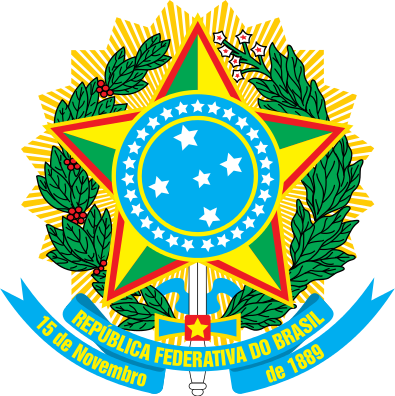Location
Following more than three centuries under Portuguese rule, Brazil gained its independence in 1822, maintaining a monarchical system of government until the abolition of slavery in 1888 and the subsequent proclamation of a republic by the military in 1889. Brazilian coffee exporters politically dominated the country until populist leader Getulio VARGAS rose to power in 1930. By far the largest and most populous country in South America, Brazil underwent more than a half century of populist and military government until 1985, when the military regime peacefully ceded power to civilian rulers. Brazil continues to pursue industrial and agricultural growth and development of its interior. Having successfully weathered a period of global financial difficulty in the late 20th century, Brazil was seen as one of the world’s strongest emerging markets and a contributor to global growth. The awarding of the 2014 FIFA World Cup and 2016 Summer Olympic Games, the first ever to be held in South America, was seen as symbolic of the country’s rise. However, since about 2013, Brazil has been plagued by a shrinking economy, growing unemployment, and rising inflation. Political scandal resulted in the impeachment of President Dilma ROUSSEFF in May 2016, a conviction that was upheld by the Senate in August 2016; her vice president, Michel TEMER, will serve as president until 2018, completing her second term.
Brazil is a federal presidential republic.
Source: CIA World Factbook
Members:
Resources
Displaying 36 - 40 of 180Decree No. 8.500 amending Decree No. 4.892 on the Fund for Land and Agricultural Reform.
This Decree amends articles 8 and 13 of Decree No. 4.892 regulating Act No. 93 creating the Fund for Land and Agricultural Reform. Amendments deal with new financial amounts and assistance requirements to be used for programmes and projects related to agrarian development. The risk of financing granted under this Decree will be the Land Fund and Land Reform, pursuant to art. 7 of Complementary Law No. 93 of 1998.
Norm INCRA No. 81 establishing the basic guidelines for obtaining rural properties for rural workers settlement.
This Norm, consisting of 13 Chapters and one Annex, establishes the basic guidelines for the administrative and technical procedures for actions to obtain rural properties for the settlement of rural workers. It specifies the following matters: Environmental planning to obtain rural properties (Chap. II); Administrative proceedings (Chap. III); Inspection and monitoring (Chap. V); Technical issues (Chap. VII), etc.
Implements: Decree No. 6.812 approving the structure and functions of the National Institute for Colonization and Agrarian Reform – INCRA. (2009-04-03)
Order IDARON/GAB No. 392 regulating land cadastre management of rural farms, farmers and farms.
This Order, consisting of 14 articles and 5 Annexes, regulates land cadastre management of rural farms, farmers and farms. It establishes that management of rural land cadastre in locations subject to the action of IDARON Agency, including as a result of cooperative arrangements or agreements, shall be governed by the provisions of this Regulation. The registration of rural farm and farmer will be issued upon request of the Company, directly or through its authorized representative, and will be accompanied by specific documents.
Decree No. 4.892 regulating Act No. 93 creating the Fund for Land and Agricultural Reform.
This Decree, consisting of 9 Chapters, regulates Act No. 93 creating the Fund for Land and Agricultural Reform. It establishes requirements to be met in order to benefit from financial assistance by the Fund.
Decree No. 8.025 amending Decree No. 4.892 regulating Act No. 93 creating the Fund for Land and Agricultural Reform.
This Decree amends Decree No. 4.892 regulating Act No. 93 creating the Fund for Land and Agricultural Reform. It establishes financial assistance requirements and specifies that in programs and projects of agrarian credit, may be funded land, under the same conditions, also incidental expenses related to the acquisition of rural property and basic investments allowing the starting of productive activities on property purchased with Funds for Land and Agrarian Reform.Part 1 is divided as follows: Principles and definitions (chap.


